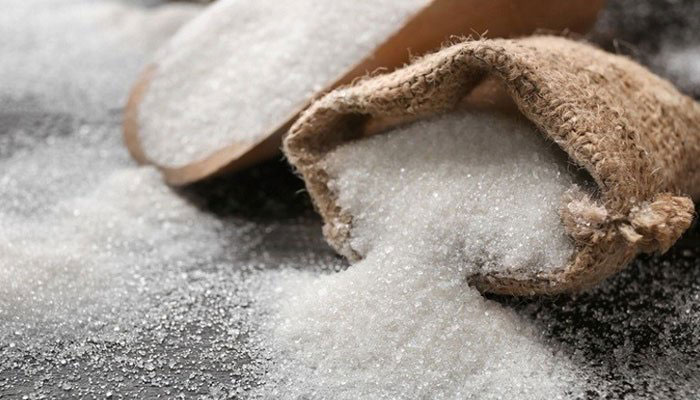Sugar Inquiry Commission didn't highlight NPMC's role in failing to control prices
by Mehtab Haider
ISLAMABAD: The Sugar Inquiry Commission has not mentioned, in its findings, the failure of the National Price Monitoring Committee (NPMC) at the federal level and the inability of the provinces to take action when sugar mill owners earned a whopping profit of Rs40.5bn by jacking up prices of the commodity in the local market, reported The News.
Although, the ECC at time of granting approval for sugar exports, had mandated an inter-ministerial committee to look at prices of the commodity in the domestic market and recommended the reversal of exports if the price escalated yet it was not mentioned who would be chairing this inter-ministerial committee and what action did the commission proposed against them after encountering such a failure.
The price control is the domain of the provincial governments so it is surprising why the commission did not throw any light on why no action was not taken despite witnessing the prices of sugar skyrocket in the domestic market. The commission only held the Sugar Advisory Board responsible for taking any action.
The Sugar Inquiry Commission stated that sugar exporters gained benefit in two ways: firstly, they were able to gain a subsidy of Rs55 per kg in December 2018 to Rs71.44 per kg in June 2019, although the GST increase was implemented from July 1, 2019. In the same period, the ex-mill price increased from Rs51.64 kg in December 2018 to Rs67.42 per kg in November 2019. The mills were making reasonable profits at the ex-mill price of Rs51.64 per kg in December 2018.
“With the increase in prices due to export, hoarding and market manipulation, the sugar sector earned an extra profit of Rs40.57 billion,” the commission found. On the request of the Commerce Division, a meeting of the Sugar Advisory Board (SAB) was held on 11-09-2018.
The agenda proposed by the Commerce Division was to review the overall availability and stock position of sugar and to wor kout the exportable surplus, if any. The Secretary Min NES&R explained that due to water shortage, low production of sugarcane was expected in the upcoming season. After consultations were held among all stakeholders, it was concluded that the total surplus sugar availability by the end of the season will be 1.962 MMT.
It was decided that after deducting the strategic reserves of two months i.e. 0.866 MMT, there would be a net surplus of 1.096 MMT, therefore it would be safe to recommend an export of 1.00 MMT without making it time-bound. SAG also recommended a Monitoring Committee, headed by the Joint Secretary (P50) Mo l&P to ensure the availability of sugar in the country on a monthly basis.
On 28-09-2018, the Commerce Division forwarded its recommendations to the ECC. The ECC, in its meeting held on 02-10-2018 decided to allow export of 1.0 MMT of sugar, and that no freight or financial support will be provided to millers/exporters by the federal/provincial governments and that the Inter-Ministerial Committee will meet fortnightly to review sugar stock, export and price situation.
In case of any abnormal increase in the domestic price of sugar, the committee would recommend to the ECC of the Cabinet for discontinuation of further exports. The export quota shall be monitored and implemented through SBP.
On 04-12-2018, in the ECC meeting, following were allowed (i) Export quota to be enhanced by 0.1 MMT, without any freight support, (ii) Since the entire issue of freight support arose due to varying procurement prices of sugarcane fixed by the provincial governments, therefore, the freight support may be determined/paid by the respective provincial governments if deemed appropriate.
iii) The ECC directed Finance Division to release Rs2.0 billion for the payment of outstanding claims of freight support for sugar export, being a federal share.
The SAB should have considered that if the increase in the price of sugar was not due to a shortage of stocks, the intervention of the government was necessary to counter the market manipulation. The ECC had asked the inter-ministerial committee to closely monitor stocks, price of sugar and recommend discontinuation of further exports, in case of an abnormal increase in the domestic price of sugar. The contention that the export was not discontinued because export commitments to China were to be honored, does not hold much weight. The export only to China could have been allowed to continue. This intervention was required to curtail the manipulative activities and give a clear message to the market about the seriousness of the government to intervene and control the prices through a ban on exports.
The commission said that it is of the opinion that the Sugar Advisory Board failed to take a timely decision to ban the export of sugar. The price hike and the export continued till February 2020.
Originally published in The News